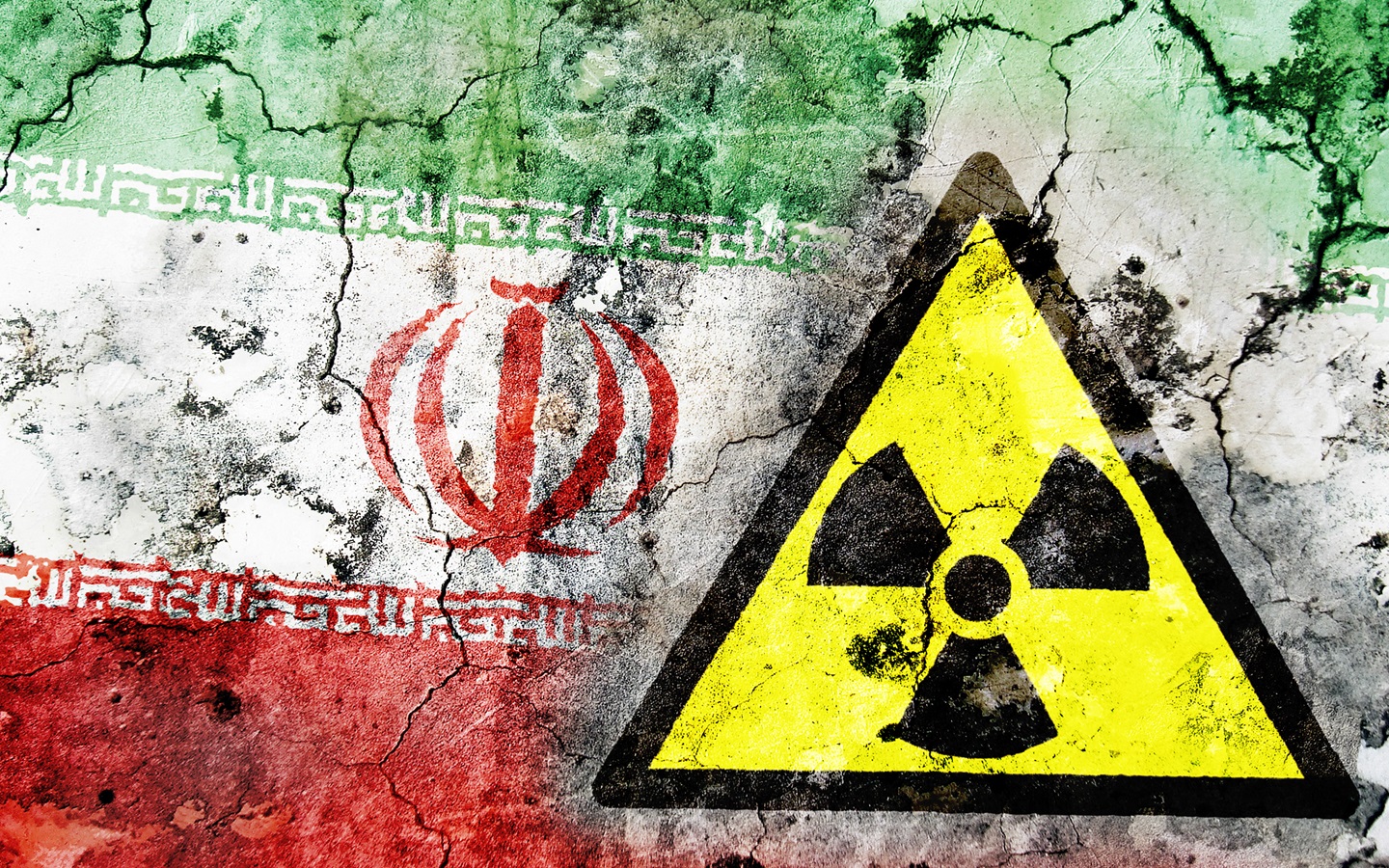Publications
INSS Insight No. 1836, March 19, 2024
The Board of Governors of the International Atomic Energy Agency (IAEA) concluded its quarterly meeting held on March 4–8, and once again no resolution was adopted against Iran. This is despite the IAEA report leaving no doubt that Iran is vigorously advancing its nuclear program and preventing the agency from exercising its oversight responsibilities. The United States and European countries reacted strongly to the report but refrained from demanding that the Board of Governors take practical action against Iran; however, they threatened that they would demand such action if Iran did not cooperate by the next meeting. Currently, Western countries, while acknowledging the seriousness of the developments in the Iranian nuclear program, seem primarily focused on crisis-management. The American administration, in an election year and faced with numerous international challenges, seems inclined to postpone a decision to a later date. Tehran also appears to recognize that as long as it does not enrich uranium to 90 percent purity, it can continue to advance its plan without risking a fierce confrontation with the United States.
The IAEA Board of Governors concluded its quarterly meeting, which took place on March 4–8, again without adopting a resolution against Iran. This is noteworthy, considering the IAEA’s periodic report presented before the meeting contained details that were described by IAEA Director General Rafael Grossi as “concerning” regarding Iran’s conduct toward the agency and the advanced status of its program. The IAEA report highlights several areas where Iran has failed to meet its commitments. The report emphasizes that:
- Iran’s stockpile of enriched uranium continues to increase, although the amount of uranium enriched up to 60 percent purity has slightly declined. The IAEA experienced a disruption in its continuous monitoring of the production and inventory of centrifuges, rotors and blowers, heavy water and uranium ore concentrates. It was noted that three years had passed since Iran temporarily stopped implementing the agency’s Additional Protocol, and three years during which the agency has been unable to undertake supplementary supervision in Iran.
- Public statements from Iran about its technical capabilities to produce nuclear weapons have only increased the IAEA’s concerns regarding the accuracy and completeness of Iran’s disclosures. The IAEA’s director general has made several recent statements that no non-nuclear country enriches uranium to 60 percent purity.
- Despite many decisions by the Board of Governors and the multiple opportunities given by the director general over several years, Iran has not provided the IAEA with technically reliable explanations for the presence of man-made uranium particles at two undeclared sites, nor has it provided information about the current location of nuclear materials and/or contaminated equipment.
- Iran has complied with the requirements to announce the construction of a new nuclear facility, as stipulated by the Revised Code 3.1 of its nuclear program’s inspection protocols. Iran is working to establish a new power reactor, IR-360, without fulfilling its obligations to maintain the Revised Code 3.1. Recently, Iran even officially announced new construction plans for a number of additional nuclear reactors but refused to provide the IAEA with initial information about their design. The report emphasizes that through these actions, Iran is potentially setting a precedent of not informing the IAEA about the construction of new enrichment facilities in the future. This concern is heightened by the construction of a new facility deep within the mountains near Natanz, which might include a new enrichment facility.
In September 2023, Iran canceled the entry permits of several IAEA inspectors in protest against the positions of various countries at the Board meeting held that same month, thus obstructing the work of the most experienced inspectors who have in-depth knowledge of Iran’s nuclear program. The director general criticized Iran’s action as “extreme and unjustified,” as it undermined the IAEA’s ability to effectively conduct its verification operations in Iran.
During the IAEA Board of Governors meeting, representatives of the United States and European countries who are partners in the nuclear agreement—France, Britain, and Germany—expressed their disapproval of Iran’s actions as detailed in the report, and they did not hesitate to criticize Iran’s conduct. However, as in previous meetings, they refrained from urging the Board of Governors to take immediate steps against Iran. They emphasized, though, that if Iran’s conduct does not change by the next Board meeting, , the IAEA and the Board of Governors will be compelled to adopt a different stance. This could involve issuing a new resolution that specifically addresses Iran’s conduct.
In a joint statement, the three European countries strongly condemned Iran for its lack of cooperation with the IAEA. They highlighted that Iran has failed to answer the agency’s questions, despite explicit requirements to do so in various decisions, the most one in November 2022. The three countries accused Iran of failing to address long-standing concerns about its actions and also noted that Iran has not reported the construction of new facilities to the IAEA. As a result, the IAEA has had to rely on commercially available satellite imagery to monitor these activities, which is particularly concerning given Iran’s history of building undeclared nuclear facilities. The European countries declared that “These actions cast reasonable doubt on Iran’s willingness to fully live up to its obligation and commitment to cooperate with the IAEA,” and stated that the agency has been unable to provide assurance about the peaceful nature of Iran’s nuclear program. Consequently, the three European countries have determined that at its next meeting, the Board of Governors will adopt a resolution and consider future actions, including the possibility of declaring Iran non-compliant with its obligations under the Treaty on the Non-Proliferation of Nuclear Weapons (NPT). Such a decision would entail referring the matter to the UN Security Council.
In a separate statement, the United States strongly condemned Iran’s conduct and announced that if Iran does not cooperate with the agency by the next Board of Governors’ meeting, the US administration will ask the General Director of IAEA to provide a “ comprehensive report” on Iran’s nuclear activity, which will be more extensive than the quarterly activity summary. The United States also stated that based on the content of that report, it would “take appropriate action in support of the IAEA and the global nuclear nonproliferation regime.” It appears that the United States intends to demand from the agency a document similar to the special appendix prepared at the end of 2011, which addressed the potential military dimension of the Iranian nuclear program. It is worth noting that the IAEA’s reference to Iran’s military potential in the 2011 appendix had been one of the main factors that led to the imposition of sanctions on Iran.

The decision by the United States and the European countries not to demand immediate action from the IAEA’s Board of Governors is not due to a lenient view of the situation, but rather it is primarily out of concern of the Iranian reaction and lack of interest to deal with another crisis against the background of the ongoing war between Israel and Hamas as well as the upcoming US presidential elections.
In fact, it seems that the main opposition to taking decisive action against Iran comes from Washington. The US administration, after its unsuccessful attempts to rejoin the nuclear agreement from which it withdrew in 2018, currently prefers to postpone the decision to a later date. The administration acknowledges the threat posed by Iran, as stated by General Kurila, the commander of the American Central Command (CENTCOM), during a recent hearing in Congress. Kurila emphasized that since October 7, Iran has been able to take advantage of the unprecedented opportunity to shape the region in its favor through its proxies. He specifically stressed the importance of holding Iran accountable for these actions. Although he mentioned that Iran’s production of uranium enriched to 60 percent purity had increased by 39 percent in the past year, he refrained from providing further details about the implications of this development and the necessary response. Meanwhile, Israeli officials have “leaked” to the media that Iran has been actively seeking components required for assembling a nuclear warhead, rather than solely focusing on uranium enrichment. According to a senior Israeli official, these actions are “very disturbing.”
Even before the report was published, Iran had criticized the statements of the IAEA director general, calling them “political.” Iran’s Foreign Ministry spokesman reiterated that the agency’s previous reports had found the nuclear program to be compliant with its commitments and emphasized that the use of nuclear weapons is not part of Iran’s military doctrine. Tehran also stated that it had diluted a small amount of the enriched material to 60 percent (a step that lacks any real significance). However, Iran objected to a proposed visit by the agency’s director general, likely as a means of pressuring him due to his recent public criticism of Tehran’s lack of cooperation with the IAEA. Iran’s refusal to comply with the agency’s demands appears to stem from its increased self-confidence, given that Washington currently seeks to avoid conflict, and its belief that it enjoys the protection of Russia’s political umbrella, which supports Iran in discussions of the IAEA Board of Governors and in the Security Council.
The IAEA’s latest report leaves no doubt that Iran is vigorously advancing its nuclear program, while the IAEA’s inability to provide a complete and reliable picture of the nuclear program’s progress exacerbates the problem. The United States and the European countries have lost hope in reaching a new agreement with Iran in the coming year. Their focus is now on managing the crisis in the hope that their “threats” of future sanctions will deter Iran. In contrast, Tehran believes that as long as it does not enrich to 90 percent purity (an unnecessary step at the present time), it can continue its plan without risking a confrontation with the United States. This is especially true since the snapback clause, the only effective lever of pressure in the Security Council’s resolution, will expire in two years.



